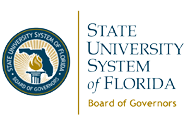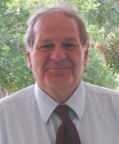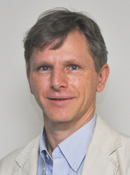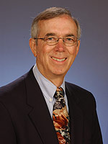University Expertise in Florida:


|
Florida Atlantic University, the Florida State University and the University of Florida were awarded a Clustering Grant for a project titled “A State University System Climate Change Task Force: Science Addressing the Needs of Florida Agencies, Industry and Citizenry".
Climate change impacts are requiring adjustments, investment, and management of change. Federal and State agencies are preparing for significant climate change impacts. FAU, FSU, and UF will join together to create an SUS-wide focus on climate change. The process will involve State and Federal agencies, water management districts, and representatives from key industries. The award will take advantage of FAU’s campus-wide focus on climate change, and UF and FSU’s joint Florida Climate Institute.
The Climate Change Task Force focuses on:
-
Identifying current State University climate change expertise, research and curricula;
- Enhancing cooperation with State and Federal agencies to bring science into climate change-related decision making;
- Developing a climate change information system and portal that will connect State University System assets with these agencies and other groups to facilitate communication.
Based on the priority climate change topics, four White Papers are developed by scientists actively involved in research on climate change. The White Papers are the major products of this project:
- Biodiversity and Land Use
- Climate Scenarios for Florida
- Education, Training, and Outreach on Climate Change
- Water Management and Coastal County Adaptation
As we go through the project, we collectively need to find ways to fill the gaps, and to design a collaborative way of deepening our understanding of the issues and communicating their importance.
Project Leaders:
 Leonard Berry
Leonard Berry
Florida Atlantic University
Professor, Center for Environmental Studies Director, and Climate Change Initiative Coordinador
berry@fau.edu
Leonard Berry, PhD is the director of the Center for Environmental Studies and coordinator of the Climate Change Initiative at Florida Atlantic University. His expertise areas include geomorphology, wetland ecosystems, and adaptation and mitigation of climate change.
Born in England, studied tropical environments in East and South Asia, and later in Eastern Africa, with 12 years residence in that area in various university positions. In Africa developed an interest in natural resource management and rural development applied problems, including work on regional planning problems for the government of Tanzania.
Since coming to the United States in 1970, has worked on environmental and development training programs for USAID, UNSO, and UNEP; and worked for the World Bank in a number of capacities. Current interests include effective information systems for natural resource management and environmental education.
In 1994 he was appointed Director of the Florida Center for Environmental Studies. The mission of the Center is to collect, analyze, and promote the use of scientifically sound information concerning tropical and sub-tropical, freshwater and estuary ecosystems. Its role is to bring the full resources of the Florida State University System to bear on the critical environmental management issues of the state and of tropical, subtropical, ecosystems worldwide.
Dr. Berry has authored/edited 27 books, over 250 professional papers and reports and has been consultant for many environmental development agencies.
 Eric Chassignet
Eric Chassignet
Florida State University
Professor, FCI Co-Director, and Center for Ocean-Atmospheric Prediction Studies Director
echassignet@coaps.fsu.edu
Eric Chassignet, PhD, is Professor and Director of the Center for Ocean-Atmospheric Prediction Studies (COAPS) and Co-Director of the Florida Climate Institute.
Professor Eric Chassignet came to Florida State University in March of 2006 to assume the
directorship of the Center for Ocean-Atmospheric Prediction Studies (COAPS) after 15 years
serving as a professor of Oceanography at the University of Miami Rosenstiel School of Marine
and Atmospheric Sciences (RSMAS). He is a professor of Oceanography at the Florida State
University, and the Co-Director of the Florida Climate Institute.
His background is in geophysical fluid dynamics and ocean modeling. His current area of
research interest is on the role of the ocean in climate variability from the complementary
perspectives of coupled ocean-atmosphere modeling and observations, with an emphasis on the study of the thermohaline circulation, western boundary currents, associated eddies and their impact on the world ocean circulation, and on the validation of the HYbrid Coordinate Ocean Model (HYCOM) with data assimilation capabilities.
 James Jones
James Jones
University of Florida
Florida Climate Institute Director, and Professor in the Department of Agricultural & Biological Engineering
jimj@ufl.edu
Dr. James W. Jones, PhD, is Distinguished Professor at the UF Department of Agricultural and Biological Engineering and Director of the Florida Climate Institute.
As a faculty member at the University of Florida in the Agricultural and Biological Engineering Department, he has conducted research and taught graduate classes for the last 35 years. He is an expert in cropping systems modeling and decision support systems. His research has focused on modeling the effects of climate on crops and on applying those models to study effects of climate variability and climate change on crop yield and to evaluate management options that minimize climate risks. He is PI and co-leads the Southeast Climate Consortium (SECC), a 3-state (Florida, Georgia, Alabama) Regional Integrated Science Assessment (RISA) center. The SECC conducts research on climate variability, agriculture, and water resources management and provides climate risk management information to farmers, foresters, and water managers through the Cooperative Extension Services in these states. He has led and participated in many interdisciplinary research programs nationally and internationally.
He is author of more than 250 refereed scientific journal articles and teaches graduate courses on mathematical modeling and simulation of biophysical systems. He is a Fellow of the American Society of Agricultural & Biological Engineers, Fellow of the American Society of Agronomy, Fellow of the Soil Science Society of America, and serves on several international science advisory committees related to climate and agriculture.
|


 Leonard Berry
Leonard Berry Eric Chassignet
Eric Chassignet James Jones
James Jones